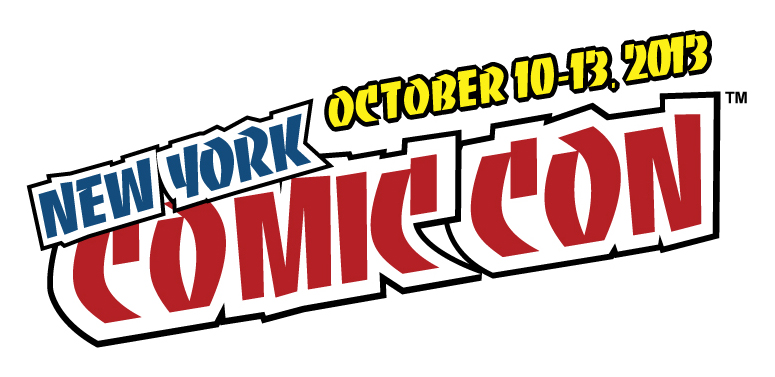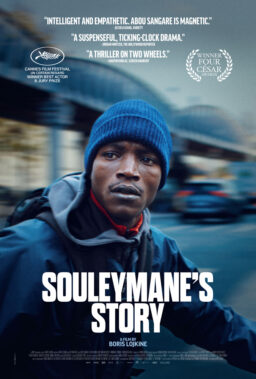I’d never been to Comic Con before, but my first immersion last month went basically as expected. Combining the usual convention center price-gouging with the atmosphere of a geek pseudo-Mecca, the New York incarnation of Comic Con’s a crowded trade show eliminating (some of the) middlemen to let fanboys buy a lot of stuff or eavesdrop on panels that give hints about forthcoming products. The mercantile mindset’s omnipresent, ranging from standard crassness (a blond woman in a tight-ish white shirt reading “I heart big cans”—for Arizona Tea, natch) to items of such niche appeal they’re comical (Stan Lee cologne?).
I was there to check out a panel called “Your Opinion Sucks! Rotten Tomatoes Critics Vs. Fans,” but before getting down to business, I wandered around to soak up the ambience, since it’s unlikely/undesirable that I’ll ever return. The most sensory-overload component’s probably the big show floor, which ranges from comic book sales and video game displays (both arcade and console: the remastered [?] “Disney’s Duck Tales” looked pretty delightful) down to sponsor Chevrolet sucking up crowded floor space to display all of its new models for 2014. Besides buying stuff and sitting in on panels, the other big draw is for people in costumes to photograph other people in costumes. For women, “Sailor Moon” is still a big look, with slightly more variety in male plumage: seeing Wolverine photograph an Invisible Man is about par for the course.
“Your Opinion Sucks!” was officially described thus in the listings: “As [Rotten Tomatoes editor-in-chief] Matt [Atchity] and [senior editor] Grae [Drake] name popular movies of 2012 and 2013, everyone in the room uses their Personal Tomatometer Paddle to dis/agree with the score—and debate questions like ‘Do reviews even matter anymore?’ Courageous members of the audience who openly debate their opinion with the critics receive super cool prizes!” This description bore little resemblance to what actually took place, which is possibly for the best: after years of wearisome think-pieces about “the death of film criticism,” no one needs another variant.
There was a good-size line for the panel some 30 minutes before: not as big as the one down the hall for, say, a session on the Whedonverse, but still more people than I’d expected, at least half of whom inexplicably looked high school age or younger. I’ll give Comic Con this: it’s about as mixed demographically as you could ask for. Young and middle-aged (the elderly presumably having already stocked up on their Jack Kirby paraphernalia), less uniformly male than anecdotally characterized, integrated in visible proportions something like the actual demographic composition of this country, it was certainly a more mixed crowd than you’d find at, say, the New York Film Festival, one big inclusive tent of peppy mediocrity.
“I’m a big movie buff, so I pay a lot of attention to IMDB and Rotten Tomatoes,” a woman in line behind me said. Both Republicans and Democrats like to blame “low-information voters” for unfavorable electoral returns; I nominate someone like this for the film-world equivalent. IMDB’s an Amazon-owned database that’s quasi-useful but full of omissions (the avant-garde gets screwed hard) and errors, combined with a variety of ignorantly expressed amateur opinions; its function has basically remained static over time, and I’m not sure how one would “pay attention” to it.
Rotten Tomatoes has mutated quite severely: when Seth Duong launched it in 1998, “the idea was that if the majority of critics who has already seen a movie recommend it, then it must be pretty good.” That’s what he wrote a year later, when it was still true that “it’s also difficult to find a magazine stand that not only has numerous papers from around the country, but also one that allows you to go through each and every one of them without purchasing them first.” This is obviously no longer the case, and now Rotten Tomatoes mostly makes it easier to instantly see which critic is acting as an outlier and to yell at them.
It’s odd behavior considering the fanboys basically won the culture wars: when AICN launched, fantasy was too expensive to do right and too stigmatized to draw mass audiences. “The Lord Of The Rings” was a gamechanger, and now the multiplexes have everything on tap a surface-level genre enthusiast could care for. These are some of the sorest winners I’ve ever seen: you don’t see, say, Nickelback fans going around screaming about how snotty elitists are crapping all over their band, because it’s not germane to their enjoyment. But you will see fanboys issuing (fairly toothless) message board death threats to nonbelievers at the church of “The Dark Knight,” with Rotten Tomatoes streamlining the process: you don’t even need to read the thing you’re screaming about.
An informed genre enthusiast is a wonderful thing, but that’s not who was here. These weren’t the passionate obsessed true believers weaned on Forrest J. Ackerman’s Famous Monsters Of Filmland, an oft-cited periodical and foundational text in the development of the modern fanboy. In the early days of Harry Knowles’ Aint It Cool News, a lot of time was spent enthusing over Errol Flynn swashbucklers and other movies slightly outside the contemporary fanboy selection pool. Now the main thing seems to be clustering around the same couple of new movies every week (generally mainstream, heavily marketed and often quite expensive) and forming vociferously expressed opinions based on some very enthusiastic adjectives, sometimes in caps lock. Anyone with a relatively oddball opinion—defending Speed Racer, say—would pre-emptively say they knew they were about to get it in the neck. After stating their opinion, one of the panelists would then be called upon argue the opposite, because critics are the opposite of normal, “real” viewers.
“What is this on?” the man sitting behind me asked his friend. “I have no idea,” his companion replied. “I think it’s us versus them.” The haphazard “them” including Salon’s Andrew O’Hehir (who, full disclosure, was my college paper’s arts section mentor and a generally benevolent professional presence) and Entertainment Weekly‘s Owen Gleiberman, two of the last people to have full-time critical positions that have lasted well over a decade at just one publication. In addition to the Rotten Tomatoes reps, the panel was rounded out by Cinemablend editor Katey Rich, “VH1 personality” Carrie Keegan, and free daily paper amNewYork‘s Rob Levin (also someone I know from my college paper days). No disrespect to anyone, that’s a pretty mainstream body of voices with generally populist instincts, largely confined by their outlets to writing about an equally mainstream pool of movies. (Except for Keegan, whose presence was pretty much a non-event, though the room learned she likes “Shrek.”)
Asked to introduce themselves by naming the movies that led them to cinephilia, panelists knew exactly who was in the room: Gleiberman briefly mentioned his love of “Nashville” (which only raised tepid scattered clapping) but dwelled extensively on “Carrie,” which got a hearty hand. When surrounded by fanboys, best to tell them you love what they love, a myopic sensibility that can drive me up the wall: there’s a strong sense of not just outsize love for certainly types of movies, but reflexive hostile lack of interest in anything outside that box. After the introductions, a line formed for the fanboys to name a film and say whether it was (in Rotten Tomatoes parlance) “fresh” or “rotten.” Their statement would be met by either manic applause or lusty booing; when the former happened, it was a bit like being in church, with a wave of spontaneous reinforcement where the “amen”s should be. Feedback was sometimes divided —”Man Of Steel”‘s boo/cheers ratio was hard to suss out—but largely unitary and reflexive, a message board dynamic IRL. There was the depressing sense that the despised amorphous mass of “critics” were presumably all on the same elitist page, with no variations between two specimens.
It was clear no one in the audience actually read much criticism: if they had, for example, the person who defended “Showgirls” would know that their defense of the film wasn’t a revisionist anomaly but part of a substantive coalition of revisionist apologists. Search a little bit and you’ll find e.g. an enthused 2004 defense by Eric Henderson that’s complicated and ideological rather than leaning heavily on camp enthusiasm. Next year Canadian critic Adam Nayman will publish a book simply called “It Doesn’t Suck,” marking some kind of high-water mark for an ongoing minoritarian push to elevate the film to classic status. That “Speed Racer” defender might have liked to know that there were defenders who compared it to Godard, while anyone who’s into the “Resident Evil” films might like to know that an unholy amount of time has been devoted to screaming over whether series overlord Paul W.S. Anderson, among others, is a “vulgar auteur.” These aren’t always productive discussions, but they’re remarkably catholic for the sheer number of potential enthusiasms and ways they’re articulated.
There was uniformity in the complaints lobbed against films (too long, lack of emotional involvement, “the acting” was bad) and comments in their praise (“it was good for what it was,” the plot had novel twists). There were a lot of super-detailed plot recaps and incoherent terms of praise (the fourth “Pirates Of The Caribbean” was commended for being “more pirate-y”). Everyone was using the same limited toolbox for every single film. A guy there to talk about “Oldboy” got his enthusiastic adjectives mixed up and was laughed at when his voice got higher and faster, winding up at the sputtering description a “revenge f*#k film.” It was obvious what was wrong with his sentence, but the sentiment was exactly representative: the entire hour-long affair was a repeated quest to find new proper nouns for the same adjectives. The binary on display wasn’t unaffected enthusiasm versus elitist snobbishness; it was repetitive insistence versus curiosity.











